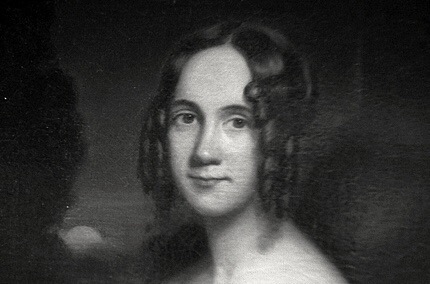Richmond during the Civil War: Thanksgiving
Did you know that a woman named Sarah, a president named Abe, and events that transpired over 200 years after the first Thanksgiving feast helped establish the holiday we now celebrate?

Originally published on November 21st, 2012.
In the next few days, most of you will be sitting down to a Thanksgiving meal with your families. We’ve all grown up hearing the story of Thanksgiving and are quite familiar with the story of the pilgrims and Native Americans sharing a big feast at Plymouth Rock. You might be surprised to hear there’s a little more to the story, and it involves years of letter writing from a woman named Sarah, a president named Abe, and events that transpired over 200 years after the first Thanksgiving feast.
After that first feast in 1621, the actual celebration of Thanksgiving was somewhat sporadic and inconsistent on a national level. George Washington declared a day of Thanksgiving in December 1777 after the defeat of the British at Saratoga and again in 1789. His successor John Adams declared days of Thanksgiving the following two years. However, later presidents, like Thomas Jefferson, didn’t continue the tradition.
It wasn’t until 1863, in the midst of the Civil War, that Thanksgiving became an official national holiday. In the midst of war, what drove Abraham Lincoln to declare a national holiday? It had a lot to do with a woman by the name of Sarah Josepha Hale. A writer and editor by trade, Hale was one of the first American novelists, but you might know her best by one of the poems she wrote, entitled “Mary’s Lamb”, better known today as “Mary Had A Little Lamb”! Crazy, right?
Anyway, I get the feeling that Sarah Hale was one of those stubborn people who, once they’ve got an idea in their head, don’t quit until they make it a reality. That’s exactly what transpired with Thanksgiving. Starting in 1846, Hale started a 17-year letter writing campaign to try to convince each president to proclaim Thanksgiving a national holiday. She wrote to five presidents in total with no success until 1863 when her letters and editorials finally compelled Lincoln to take action. He was presumably moved by her reasoning that the holiday would help to unify the war-torn country. Lincoln released a proclamation that fall declaring that the final Thursday in November would be the new national holiday:
…In the midst of a civil war of unequalled magnitude and severity, which has sometimes seemed to foreign States to invite and to provoke their aggression, peace has been preserved with all nations, order has been maintained, the laws have been respected and obeyed, and harmony has prevailed everywhere except in the theatre of military conflict; while that theatre has been greatly contracted by the advancing armies and navies of the Union. Needful diversions of wealth and of strength from the fields of peaceful industry to the national defence, have not arrested the plough, the shuttle, or the ship; the axe had enlarged the borders of our settlements, and the mines, as well of iron and coal as of the precious metals, have yielded even more abundantly than heretofore. Population has steadily increased, notwithstanding the waste that has been made in the camp, the siege and the battle-field; and the country, rejoicing in the consciousness of augmented strength and vigor, is permitted to expect continuance of years, with large increase of freedom. No human counsel hath devised nor hath any mortal hand worked out these great things. They are the gracious gifts of the Most High God, who, while dealing with us in anger for our sins, hath nevertheless remembered mercy. It has seemed to me fit and proper that they should be solemnly, reverently and gratefully acknowledged as with one heart and voice by the whole American people. I do therefore invite my fellow citizens in every part of the United States, and also those who are at sea and those who are sojourning in foreign lands, to set apart and observe the last Thursday of November next, as a day of Thanksgiving and Praise to our beneficent Father who dwelleth in the Heavens…
Interestingly, here in Richmond, Jefferson Davis also declared a “day of Thanksgiving” in the Confederacy a year earlier in September of 1862. However, this day was marked by fasting and reflection, not the traditional feasting we’ve come to know. In the years after the Civil War, the holiday designated by Lincoln became the national celebration we know it today.
So when you’re sitting around the Thanksgiving table this year and the conversation turns to politics or family drama, make sure you keep this anecdote handy so that you can change the subject and impress everyone with your Thanksgiving trivia knowledge. You can tell them it’s not just about pilgrims anymore! The reason we’re all gathered around the table is due in large part to the woman who wrote “Mary Had A Little Lamb”.
-
Recommend this
on Facebook -

Report an error
-

Subscribe to our
Weekly Digest




There is 1 reader comment. Read it.